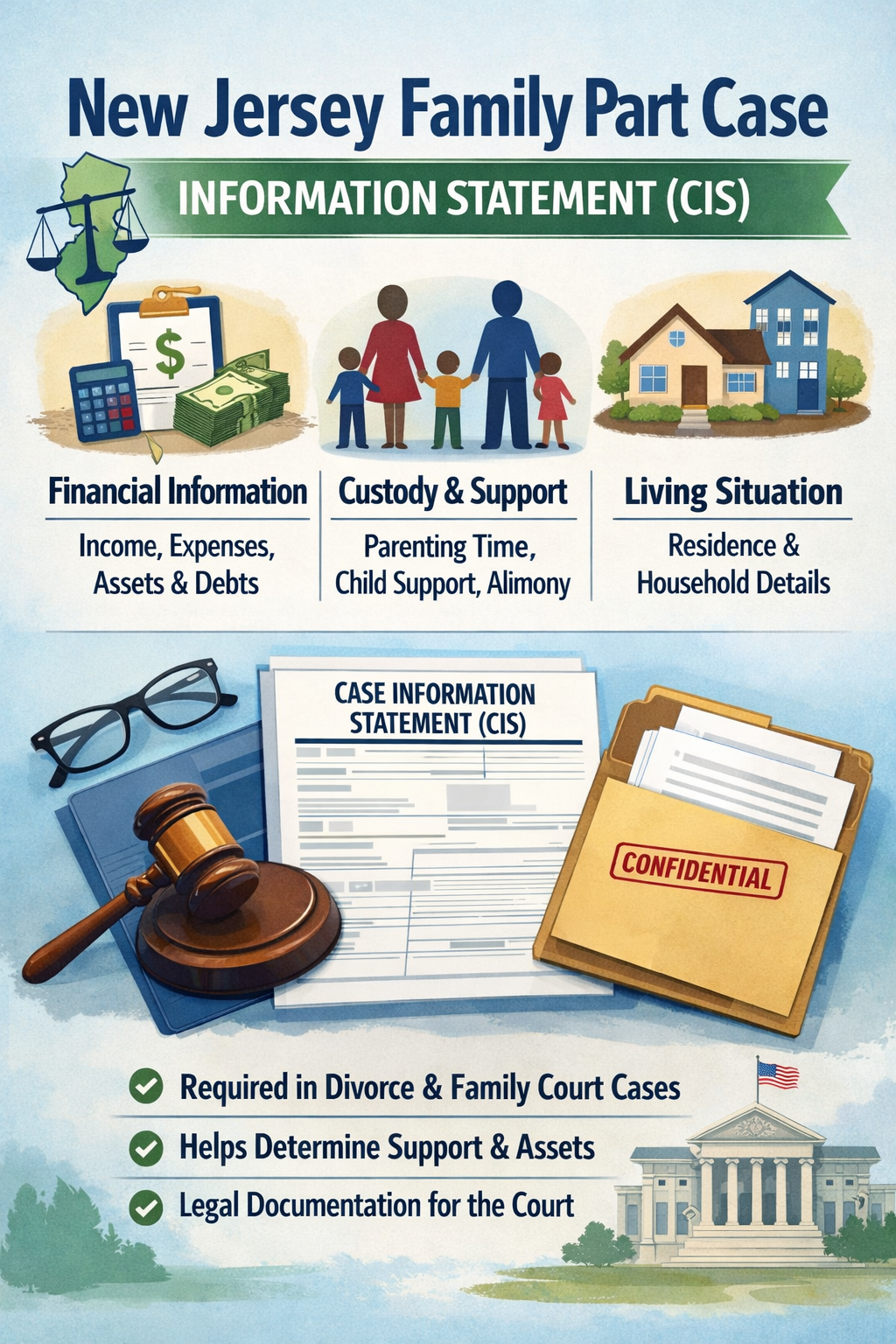Understanding How to Calculate Alimony Payments in NJ
December 9, 2021
Divorce proceedings in New Jersey can quickly become contentious affairs that negatively affect all parties involved. With hurt feelings, broken marriages, and confused children complicating matters, couples turn to their divorce lawyers to help guide them through the process. When it comes to figuring out the particulars of alimony, child custody, and parenting time, the New Jersey court can swiftly become hostile.
Calculating who owes whom spousal support and how much can lead to the most toxic arguments. To figure out who receives alimony or spousal support and for how much revolves around having the right representation to help argue for your case and ensure you get the child support you need and deserve.
How Do the Courts Calculate Alimony Payments?
The purpose of alimony payments centers around the idea that people have become accustomed to a particular lifestyle. Now that they have divorced their spouse, they won't meet that threshold. It's an aspect of family law that leads to the most heated arguments in the courts — how does one prove what their lifestyle was like, and how do they come up with the number for their former spouse to pay?
Alimony payments tend to come into the picture when children are involved, or the difference between the two's income is significant enough for a noticeable dip in quality of life. For a family law attorney
in New Jersey, these calculations start with both parties' gross incomes. Generally speaking, the spouse with the lower income will be awarded anywhere from 20-25% of the net difference between the two amounts.
Are There Outside Factors That Can Affect This Number?
General rules of thumb can prove helpful guidelines for this type of family; however, they are not the end-all-be-all for determining alimony and child support payments. Several additional factors can determine the overall number, who pays what, and when they make the payments.
Need Vs. Ability
Real-world circumstances often complicate the calculation of alimony numbers, who can receive and make payments. The needs of one party and the ability of the other to make those predetermined payments go a long way towards determining how the alimony payments are calculated.
Length of the Marriage
The length of the relationship and marriage helps inform the judge of how much a particular payment structure gets set up. The longer a particular marriage lasted and the more accustomed they became to that lifestyle are significant determinants of the ongoing alimony payments. There is no set formula for the number of years and is determined on a case by case basis.
Ages of the Former Couple
The ongoing health of the former couple becomes a critical factor the older the participants are. With older couples going through a divorce, things like retirement funds, assets, and other sources of income can become part of the determination of alimony payments.
Earning Potential of Each
How each party's career is set up moving forward can become a determining factor in setting the alimony payments. Their level of education, career prospects, and employment in the current job market will help inform the judge of what these payments will look like moving forward.
Parental Responsibilities
During the legal separation and divorce process, the courts will figure out how the breakdown of parental responsibilities will be moving forward. As to who gets primary custody, parenting time, and all of the gritty details, the courts can also determine who receives child support and how much they can expect to help take care of the former couple's children. The New Jersey Child Support Guidelines are used to calculate child support based upon the incomes of the parties, number of overnights, and deductions such as for medical, retirement, and/or union dues.
Know What to Expect From New Jersey Courts
The family law system in New Jersey can be fraught with challenges and hurdles that you need to navigate through an already contentious divorce. Understanding how alimony is calculated and what factors influence the final number can go a long way towards helping you know what to expect in the future. Berg & Pearson, P.C. is here to help guide you every step of the way towards the final marital settlement agreement.
Contact our experienced family law attorneys and get started preparing for your case today!

The New Jersey Judiciary implemented significant revisions to the Case Information Statement (CIS), the financial disclosure document required in divorce and other Family Part matters involving support and equitable distribution. These updates modernize the form, expand required disclosures, and reinforce the importance of transparency in family court proceedings. For parties involved in divorce or post-judgment applications, compliance with the revised CIS is critical. Courts rely heavily on this document when determining child support, alimony, equitable distribution, and counsel fees. The CIS is a sworn statement of a party’s financial circumstances and is required in matters involving: • Child support • Alimony • Equitable distribution of marital assets and debts • Counsel fee applications • Post-judgment motions seeking modification of financial obligations Key Updates to the CIS 1. New Schedule for Seasonal and Occasional Expenses The revised CIS separates seasonal and non-monthly expenses from standard monthly household costs. This change is intended to provide courts with a clearer understanding of true annual expenses. Examples include snow removal, lawn or landscaping services, vehicle registration and inspection fees, and other recurring but non-monthly costs. 2. Expanded Asset Disclosure The updated CIS requires disclosure of additional asset categories that reflect modern financial realities, including: • Cryptocurrency and other digital assets • Children’s financial accounts, such as custodial savings or 529 plans • Prepaid taxes, tax refunds, and tax credits • Income tax carryover losses • Any assets not otherwise specifically identified on the form 3. Expanded Liability Categories Parties must now expressly disclose: • Tax liabilities, including unpaid federal or state obligations • Any other liabilities not previously itemized on the CIS This change helps courts assess net worth more accurately when allocating marital debt. 4. Dedicated Line Item for Streaming and Digital Subscriptions Recognizing the prevalence of subscription-based household expenses, the revised CIS includes a specific line item for streaming services and digital subscriptions. This promotes consistent reporting of expenses that were previously scattered across miscellaneous categories. Conclusion The revised New Jersey Case Information Statement represents a meaningful modernization of financial disclosure requirements in family law cases. Parties involved in divorce or post-judgment matters must take care to use the updated form and provide complete, accurate information supported by documentation. Given the central role the CIS plays in determining financial outcomes, working with experienced family law counsel can help ensure compliance, protect credibility, and avoid unnecessary disputes. For guidance on preparing or updating a Case Information Statement, or for questions regarding divorce and post-judgment financial issues, consult with a qualified New Jersey family law attorney.

Why Choose Mediation Over Litigation in New Jersey? If you’re facing a divorce or family dispute in New Jersey, you may be wondering whether to pursue litigation or mediation. While both are viable legal paths, mediation often provides a more cost-effective, private, and collaborative solution. 💰 1. Mediation is More Cost-Effective Litigation involves court fees, multiple attorney appearances, and drawn-out legal battles. Mediation typically reduces costs significantly because the parties share the cost of a neutral mediator and avoid prolonged courtroom proceedings. 🔐 2. Mediation is Confidential Court cases are part of the public record. Mediation sessions are private, allowing you to resolve personal or sensitive matters discreetly. 🧭 3. You Maintain Control Over the Outcome In litigation, a judge decides the outcome. In mediation, you and the other party create your own agreement, which often results in more practical and lasting solutions. 🕊️ 4. Mediation is Less Stressful and More Cooperative Mediation focuses on problem-solving rather than blame, reducing conflict and making the process more amicable—especially important when co-parenting is involved. 👶 5. It’s Better for Children New Jersey courts often favor mediation for custody and parenting time because it promotes cooperative parenting and helps maintain stable routines for children. 🕒 6. More Flexible Scheduling You’re not bound by a court’s calendar. Sessions can be scheduled around your availability, speeding up the process. 🤝 7. It Preserves Relationships Whether it’s your co-parent, a sibling, or a business partner, mediation helps maintain respectful communication for future interaction. Conclusion: New Jersey courts encourage mediation for good reason. It’s faster, less expensive, and often leads to more satisfactory outcomes than traditional litigation. If you're navigating a family law matter, consider speaking with a qualified mediator to see if it’s right for you. Need Help with Mediation in New Jersey? Contact our office today to learn more about how we can help!

Donald Trump indicated that Tom Homan, the former acting U.S. Immigration and Customs Enforcement director under Mr. Trump’s previous administration, will serve as “Border Czar” in his incoming administration. This position will likely play an important function in furtherance of Mr. Trump’s campaign pledges to secure the border and target individuals for in a massive deportation operation. Mr. Homan previously warned that, “no one’s off the table. If you’re here illegally, you better be looking over your shoulder.” He further assured. “You’ve got my word. Trump comes back in January, I’ll be in his heels coming back, and I will run the biggest deportation operation this country’s ever seen.” He further said, “It’s going to be a well-targeted, planned operation conducted by the men of ICE. The men and women of ICE do this daily. They’re good at it.” When asked whether there was a way to carry out deportations without separating families, he said, “Families can be deported together.” In today’s heightened political climate on the issue of immigration, it is highly recommended that you take all steps to assure your legal status in the United States. If you are married to a United States Citizen and living in the United States without proper credentials, you should take steps to become legal. If you are a permanent resident, now is the time to become a United States Citizen.

Essential Qualities to Look for in a Divorce Lawyer Going through a divorce can be one of the most challenging experiences in a person's life. Choosing the right divorce lawyer can make a significant difference in navigating this difficult process. Here are the most important qualities and factors to consider when selecting a divorce attorney. 1. Experience and Expertise When it comes to divorce, experience matters. Look for a lawyer who specializes in family law and has a proven track record in handling divorce cases. An experienced attorney will be familiar with local laws, court procedures, and potential pitfalls, giving you an advantage in your case. 2 . Strong Communication Skills A good divorce lawyer should communicate clearly and effectively. They should be able to explain complex legal concepts in a way you can understand and keep you informed about the progress of your case. Look for someone who listens to your concerns and responds promptly to your questions. 3. Empathy and Understanding Divorce can be emotionally draining. An empathetic lawyer can provide not only legal support but also emotional understanding. Look for someone who demonstrates compassion and is sensitive to the stress you’re experiencing, as this can make the process more manageable. 4. Strategic Thinking Divorce cases often require strategic planning. A competent lawyer should be able to assess your situation, identify the best course of action, and anticipate potential challenges. They should work with you to develop a tailored strategy that aligns with your goals. 5. Negotiation Skills Many divorce cases are settled outside of court through negotiation. A skilled negotiator can help you reach a fair settlement that meets your needs. Look for a lawyer who has strong negotiation skills and is willing to advocate fiercely on your behalf while remaining open to compromise when appropriate. 6. Reputation and Reviews Researching a lawyer’s reputation can provide valuable insight. Look for online reviews, testimonials, and ratings from past clients. You can also ask for recommendations from friends or family who have gone through a similar experience. A lawyer with a positive reputation in the community is more likely to be reliable and effective. 7. Transparent Fees and Billing Understanding the costs associated with hiring a divorce lawyer is crucial. Look for someone who is transparent about their fees and billing practices. Ask about their hourly rates, retainer fees, and any additional costs you might incur. A good lawyer will provide a clear breakdown of what you can expect financially. 8. Compatibility and Trust You’ll be sharing personal and sensitive information with your lawyer, so it’s important to find someone you feel comfortable with. Trust your instincts when meeting potential lawyers. Choose someone whose approach resonates with you and whom you feel you can rely on throughout the process. 9. Accessibility and Support Divorce can be a lengthy process, and you want a lawyer who is accessible when you need them. Consider their availability and willingness to support you. A lawyer who makes time for their clients and prioritizes communication can help you feel more secure during this transitional period. 10. Understanding of Child Custody Issues (if applicable) If children are involved in your divorce, finding a lawyer with a strong understanding of child custody laws is essential. They should be knowledgeable about what factors the court considers in custody arrangements and how to advocate for your children’s best interests. Conclusion Choosing the right divorce lawyer can significantly impact the outcome of your case and your overall experience. By considering these essential qualities, you can find a legal advocate who aligns with your needs and helps you navigate the complexities of divorce with confidence. Take your time in the selection process and prioritize finding someone who will support you through this challenging chapter of your life. The lawyers at Berg & Pearson, P.C. are here to help!

Divorce is a deeply emotional and difficult process, and it is normal to feel overwhelmed. Here are some steps that might help you navigate the situation. 1. Give yourself space to process emotions: • Take time to process what you’re feeling. Shock, sadness, anger, and confusion are common reactions. • It can be helpful to speak with a therapist or counselor to help you sort through your emotions. 2. Communicate with your spouse: • When you’re ready, have a calm conversation with your spouse. Try to understand the reasons behind their decision. • If emotions run high, consider using a neutral space or even a mediator to facilitate the conversation. 3. Seek legal advice: Contact Michael H. Berg, Esq., or Joy A. Pearson, Esq., our lawyers who practice family law who can help you understand your rights and what to expect from the process. Getting professional guidance is important. 4. Take care of practical matters: • Consider joint assets, debts, and financial responsibilities. You might want to begin organizing important documents, like financial records, mortgages, and other assets. • If you have children, start thinking about how to approach custody, visitation, and support in a way that prioritizes their well-being. 5. Find support: • This is a challenging time, so don’t hesitate to lean on trusted friends or family for emotional support. • Divorce support groups or individual therapy can be helpful for finding a sense of community or guidance from people who understand what you’re going through. 6. Take care of yourself: • This is a draining time emotionally, physically, and mentally, so prioritize self-care as much as you can. Sleep, eat well, and try to maintain routines or hobbies that keep you grounded.






